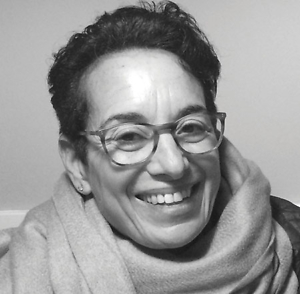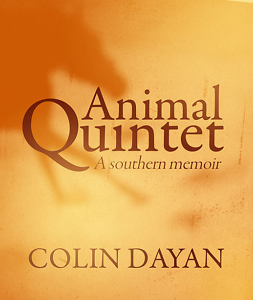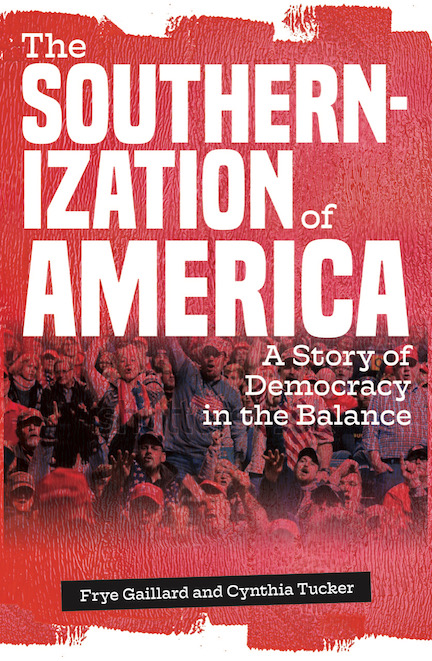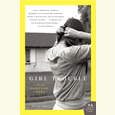Violence, love, and animals
Colin Dayan discusses the obsessions that shape her work
Colin Dayan’s Animal Quintet, as the title suggests, is an ensemble of short compositions, each with an animal motif. “The Old Gray Mare” makes the well-known folk song the foundation for considering the brutal commodification of living beauty — whether in horses or women. “Goring Beauty” is a disturbing look at the ritual sadism of bullfighting. Pet chickens, possum hunting, and the boll weevil anchor other essays in this deeply personal collection, a companion volume of sorts to Dayan’s 2019 memoir, In the Belly of Her Ghost, centered on her relationship with her Haitian-born mother.
 Her mother — elegant, unhappy, unloving — looms large in Animal Quintet, as does the housekeeper and nanny, Lucille, who cared for Dayan during her childhood in Atlanta. The collection is a potent mix of memoir and meditation, tender dreams and nightmares. “These are also political stories,” Dayan writes in the book’s prologue, “evidence of extinctions small and large, cruelty that comes to us as entertainment, racism that rears its head in songs about animals, loved or hunted, killed or kept.”
Her mother — elegant, unhappy, unloving — looms large in Animal Quintet, as does the housekeeper and nanny, Lucille, who cared for Dayan during her childhood in Atlanta. The collection is a potent mix of memoir and meditation, tender dreams and nightmares. “These are also political stories,” Dayan writes in the book’s prologue, “evidence of extinctions small and large, cruelty that comes to us as entertainment, racism that rears its head in songs about animals, loved or hunted, killed or kept.”
Colin Dayan is the Robert Penn Warren Professor in the Humanities at Vanderbilt University. She answered questions from Chapter 16 via email.
Chapter 16: In this book, as in your memoir In the Belly of Her Ghost, you grapple with the ghost of your mother and her feelings toward you or her absence of feeling. You seem to suggest that the same racist, patriarchal society that lauds motherhood also destroys natural mother-love. Is that a fair reading?
Colin Dayan: Does that same racist patriarchal society that lauds motherhood also destroy natural mother-love? I think that is certainly a possible reading of my book. Another is that my mother felt unloved by my father — an older, overly intellectual man, busy with his work, who didn’t know how to express his feelings. Let me be clear. My mother never directly expressed to me her sense that the South was too racist for her. Only late in her life, before she died, did she share her longing for Haiti. It’s difficult to know. As I suggest, she remained a mystery to me. I would not know or even be able to imagine what you call “natural mother-love,” except as I’ve seen it in some animals. I should add, however, that my pet rabbits ate their babies.
Chapter 16: You write that Lucille taught that being more like an animal brought you closer “to goodness, to the things that mattered, and especially, to love.” Can you explain that idea a little more? What is the nature of the goodness animals know more fully than we do?
Dayan: Animals know. They also have faith. I have been watching my dogs for years now, and since moving South, I’ve known a couple of red cardinals and a particular squirrel that are regular visitors to my porch. But since my dog Stella died last year, they come less often. They knew her. They looked for her. They felt her loss. Then they figured they’d find another place to visit.
But you asked about the knowledge of animals. For me, it is another kind of intelligibility. Or let me put it this way. I regained my faith and began to know the life of the spirit through my dogs in Tucson. They taught me that no one ever gives up the ghost, even when flesh and bone are consumed. In With Dogs at the Edge of Life, I wrote that the flesh compels this intimacy of spirit. Dogs inspire a sentience that has everything to do with perception. I aspire to that attentiveness.
Chapter 16: In a passage about possum hunting, you write, “Pursuit and eradication are forms of knowledge, ways humans hone their fury.” That destructive human fury comes up often in your work. Do you think it’s an inescapable part of who we are?
Dayan: I don’t want to generalize. Not all humans are destructive, but I write with a daily sense of our guilt for the harm done to our environment, to other beings, human and non-human, even to the green world around us, by humans, past and present. The bumblebees are gone out back. So are the butterflies, the monarchs that graced the flowers when I first arrived in Nashville. I have been called a contrarian, and maybe that reflects the way I look around me and at the world. But maybe that also points to something that is wrong with the world as it is today.
 Chapter 16: The stories in Animal Quintet are all deeply rooted in the culture and atmosphere of particular places and times. You resist the impulse to generalize, and yet you’re touching on some of the questions about society that have interested you for a long time as a scholar. As a memoirist, do you experience a tension between these two modes of working?
Chapter 16: The stories in Animal Quintet are all deeply rooted in the culture and atmosphere of particular places and times. You resist the impulse to generalize, and yet you’re touching on some of the questions about society that have interested you for a long time as a scholar. As a memoirist, do you experience a tension between these two modes of working?
Dayan: Writing memoir was always with me. I always told stories. My mother used to tell her friends not to believe anything I said, since nothing ever came out completely true. As you suggest, when it comes to writing, actuality and remembrance are not opposed. Most of my work — Haiti, History, and the Gods, even the book on prisons and the law, The Law Is a White Dog — breaks into the personal voice. I never played around with “theory.” There are places in the prose where the self enters and maybe that is why these books endure. Reviewers noted — sometimes quizzingly — the “passion” or “intensity” of my analyses. Yet I must admit that in the memoirs I had to talk and remember and write with more immediacy than is customary in academic writing.
But I’m avoiding the gist of your question. Yes, the stories in both In the Belly of Her Ghost and Animal Quintet continue to confront the subjects that obsess me in all my writing: race hatred, ghosts, spirituality, violence, love, and animals.
Chapter 16: The South as a separate culture is still very alive in your writing. How much of that separateness remains current and observable, and how much is shaped by the memories you carry? Or to put it in grander terms, can we separate experience from memory?
Dayan: As I said, experience and memory aren’t easily separated. My experience of the South now is part and parcel of what I held in my mind over time. You speak of the “South as a separate culture.” Yes, it is. I think of just how to account for that culture all the time: a way of speaking, holding on to the words, letting them find themselves. I love talking to people here. Not to exaggerate, but there’s real beauty in the talk, in the joy of finding the right words that will have the right effect. I could never leave now. Sometimes I toy with the idea, since my oldest friends are up North, but I could never do it.
Some of my friends here argue that the South is a lot like other places, and I shouldn’t appeal to any myth of Southern exceptionalism. But I know in my bones that the terrain, the sounds in the night, the voices of my neighbors, the way we talk, the things we accept, and the way of acceptance are like no other place I’ve ever lived. My only regret is that I didn’t move out to a farm in the country, since that was my plan when I left Philadelphia: to get some chickens and a horse and live on the land.
Your question reminds me that, when I revived a long dormant Southern literature course in the English department at Vanderbilt, I hoped to demonstrate how the writing shapes itself so differently for a Southern writer. The attentiveness that I mentioned at the beginning of our interview – the sound of crickets, the appreciation of things often overlooked in other places, the feel of dirt, the sight of magnolia blossoms — stimulate my writing and make my life here worth living.
Maria Browning is a fifth-generation Tennessean who grew up in Erin and Nashville. Her work has appeared in Guernica, The Los Angeles Review of Books, and The New York Times. She’s the editor of Chapter 16.





